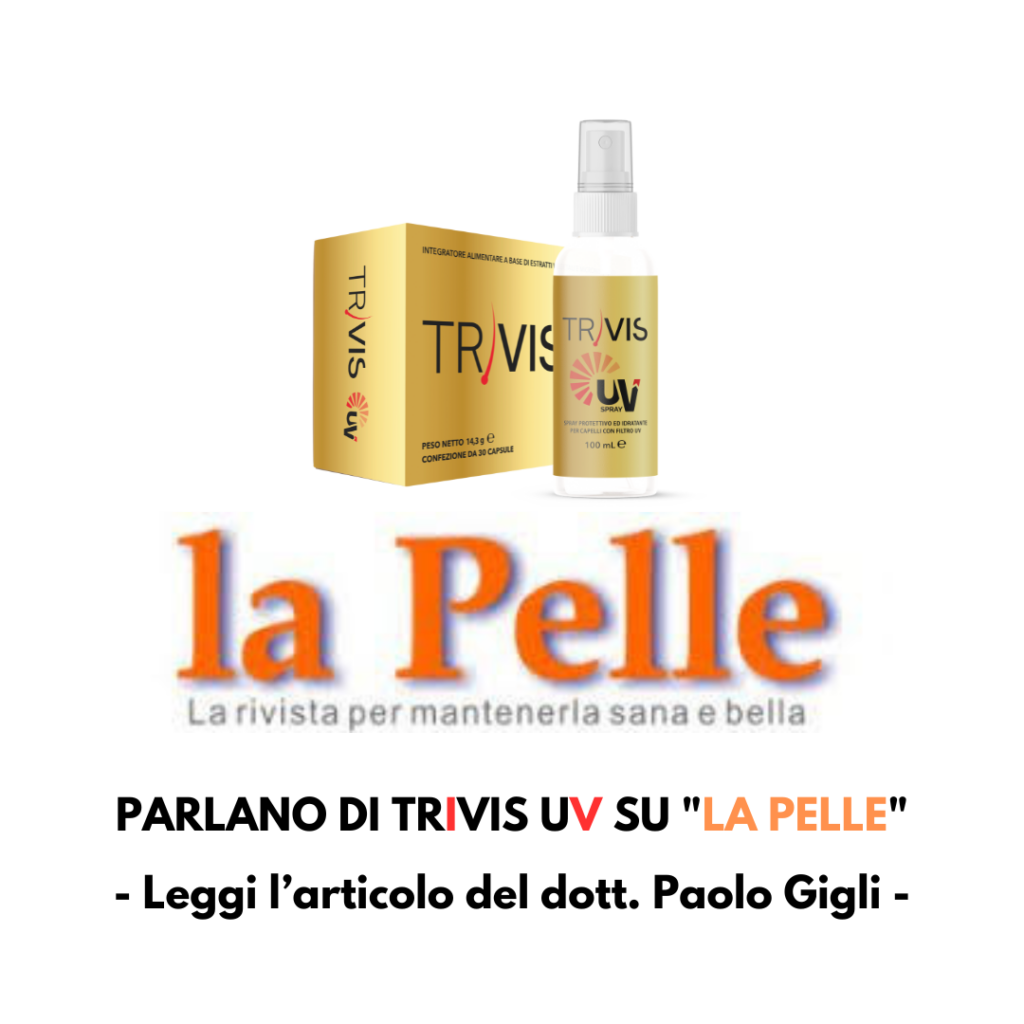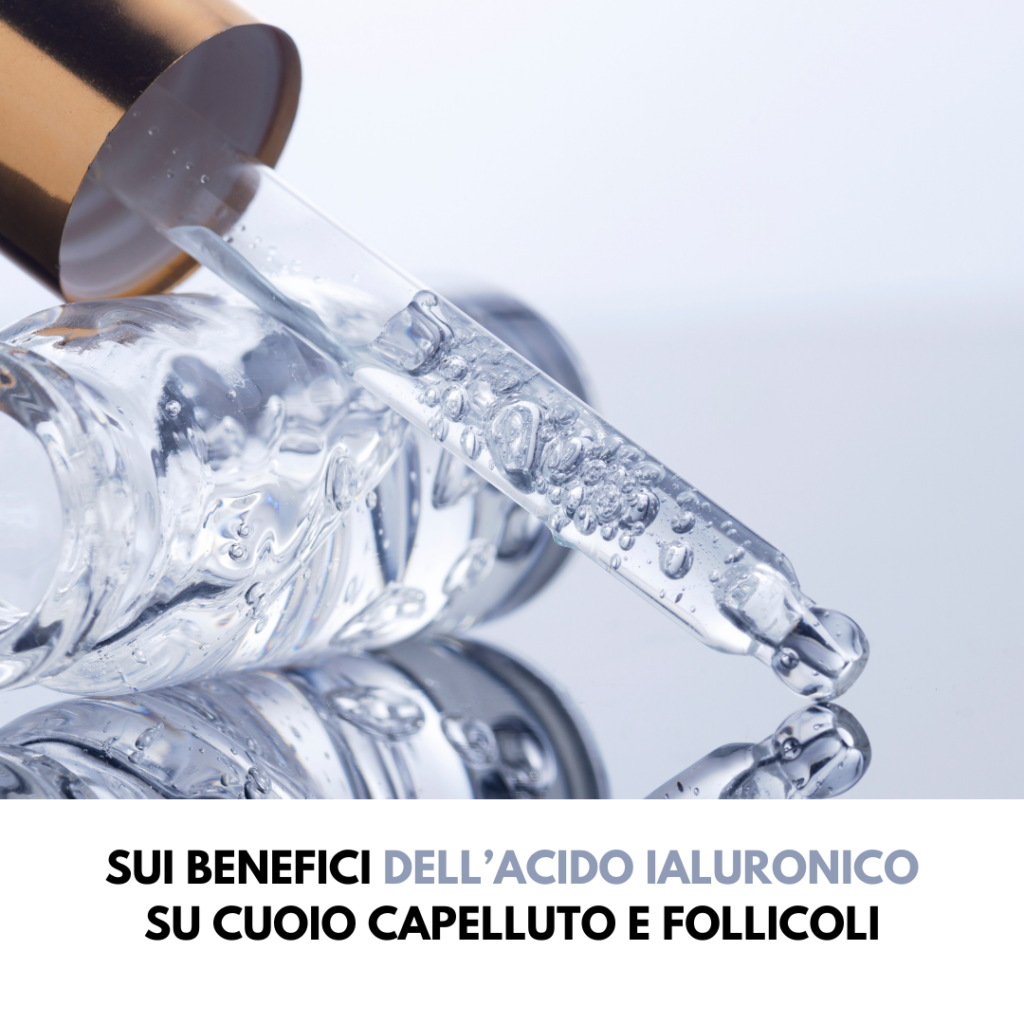Scientific articles
Publication in JPD journal
"Journal of Plastic and Pathology Dermatology"
Male androgenetic alopecia with a strong inflammatory component

Dr. Paolo Gigli
Medical Doctor specializing in Dermatology and Venereology
Adjunct Professor in Medical and Surgical Trichological Sciences
at the University of Florence
Founding Member of the Italian Society of Trichology
Deputy Scientific Director of the Italian Journal of Trichology
Index
In the pathogenesis of almost all trichological disorders, there is a lowest common pathogenetic denominator, which isinflammation. We find this type of mechanism not only in androgenetic alopecia but also in Alopecia Areata and Telogen Effluvium. So it is basic in the economy of the treatment prescribed to the patient, to act by counteracting the inflammatory phenomena.
From a clinical point of view, scalp inflammation is manifested by symptoms such as scalp pain (trichodynia), burning, and itching. At trichoscopy, yellowish areas surrounding the hair follicles, called Yellow Dots, are identified and are the dermatoscopic counterpart of inflammation. Trichological pathologies and inflammation thus have a very profound correlation.
Treating an androgenetic alopecia requires both blocking the effects of dihydrotestosterone on the hair follicle and modulating inflammation and blocking it. The latter tends to create fibrosis phenomena which slowly superficialize the follicle, reducing follicular depth and Anagen phase. In worst-case scenarios, atrophy of the follicle can occur.
Both drug therapies, mainly low-potency corticosteroids in lotion form, and specific, targeted nutraceuticals systemically can be used to treat this inflammation.
Therefore, it is possible to intervene with anti-inflammatory agents that are not pharmacological, but natural, that is, from phytoextracts. These exert their action in a targeted manner: one active ingredient that can be used is EPILOBIO, which represents a novelty among phytoextracts in that it is a natural anti-inflammatory not yet used in trichology.
It is a natural anti-inflammatory that also has sedative, decongestant and soothing properties. It owes its characteristics to components called. ellagitannini. Epilobium reduces the release of mediators of acute inflammation, including LOX and COX, reduces the release of TNF-alpha, and exerts sebum-regulatory action as a 5-alpha-reductase inhibitor. Epilobium finds its maximum therapeutic expression when used in combination with classical therapy, for example with activators of mitotic activity such as Minoxidil or 5-alpha-reductase inhibitors such as Serenoa Repens in soft gel (92% oil) or Finasteride, associated with antioxidants. The optimal therapeutic approach is to manage the hormonal mechanisms of androgenetic alopecia on the one hand and to manage the inflammation.
Read the full article in the JPD!
[…]
Epilobium ENOTProst®
Epilobium Angustifolium (patented extract) is a plant known in Europe for its anti-inflammatory and antioxidant properties, related to the synergistic activity of its many components, mainly including ellagitannins, especially Enotein B.
Commonly Epilobium, applied locally or taken as an infusion, has been used in traditional medicine for the treatment of traumatic skin wounds, burns, urinary tract symptoms by virtue of its anti-inflammatory, analgesic, antibacterial effects. Extracts of epilobium have also long been used in various prostatic diseases, such as benign prostatic hypertrophy and prostatitis, for their anti-inflammatory, anti-proliferative, and anti-androgenic effects given the physiological blockade on 5-alpha-reductase.
The phytochemical composition of Epilobium extracts sees the presence of fatty acids (caproic, linoleic, linolenic, etc.), aromatic acids (ellagic, gallic, etc.), sterols (campestrol, β-sitosterol, etc.), flavonoids (guaiaverine, quercetin, etc.), ellagitannins (enotein A and B, etc.).
Experimental in vitro studies have demonstrated its analgesic, anti-proliferative (cytotoxic effect and to an interference in cell cycle progression), anti-inflammatory (inhibition of LOX and COX, reduction of TNF-α), immunomodulatory (induction of neutral endopeptidase, increased immune response mediated by activation of macrophages) anti-androgenic (inhibition of aromatase and 5α-reductase), antimicrobial (broad-spectrum bactericidal effect), antioxidant (increased SOD1 levels), radical-scavenger (inhibition of membrane lipid peroxidation), anti-aging and photo-protective (inhibition of collagenase, hyaluronidase, matrix metalloprotease). Laboratory animal studies have confirmed its anti-inflammatory, anti-androgenic, analgesic activity with a good safety margin.
ENOTProst® is a standardized and patented dry extract of Epilobium containing organic and phenolic acids, tannins, flavonoids, and ellagitannins, including 15% of Enotein B. ENOTProst® was, therefore, shown to be effective in reducing urinary symptoms related to benign prostatic hypertrophy in a double-blind controlled clinical trial.
To find out even more about the correlation between trichological disorders and inflammation:
Read the full article!
Share the article on your socials!
Stay up to date*, sign up for our Newsletter to receive every article on your email!
You may also be interested in.
-
 24 Jun 2025THEY TALK ABOUT TRIVIS UV ON “THE SKIN”
24 Jun 2025THEY TALK ABOUT TRIVIS UV ON “THE SKIN” -
 19 Jun 2025ON THE BENEFITS OF HYALURONIC ACID ON SCALP AND FOLLICLES
19 Jun 2025ON THE BENEFITS OF HYALURONIC ACID ON SCALP AND FOLLICLES -
 23 May 2025ON THE IMPORTANCE OF PER OS TREATMENT FOR COMPLETE PHOTOPROTECTION OF THE SCALP
23 May 2025ON THE IMPORTANCE OF PER OS TREATMENT FOR COMPLETE PHOTOPROTECTION OF THE SCALP -
 14 May 2025READ THE ARTICLE BY DR. PAOLO GIGLI ON THE IMPORTANCE OF SPECIFIC SOLVENTS FOR GALENIC PREPARATIONS
14 May 2025READ THE ARTICLE BY DR. PAOLO GIGLI ON THE IMPORTANCE OF SPECIFIC SOLVENTS FOR GALENIC PREPARATIONS -
 09 May 2025ON THE USES OF EPILOBIUM EXTRACT IN TRICHOLOGY AND DERMATOLOGY
09 May 2025ON THE USES OF EPILOBIUM EXTRACT IN TRICHOLOGY AND DERMATOLOGY

